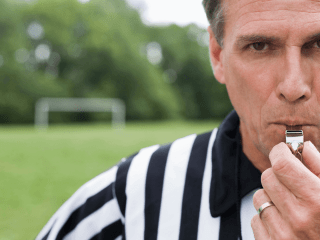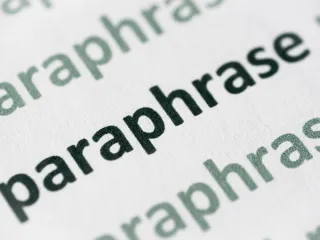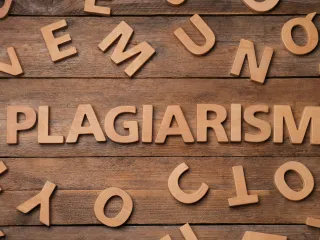As we navigate this era of information overload and 24-hour news cycles, it’s never been more crucial to evaluate the words and claims of political figures critically. Plagiarism, while considered an unethical act, has been known to slip into the discourse, damaging the credibility of those involved and eroding trust in the democratic process.
This guide offers a comprehensive approach to spotting plagiarism in political speeches, arming you with the tools to become a discerning consumer of political content.
Understanding Plagiarism in Political Speeches
Plagiarism, at its core, is taking someone else’s work, ideas, or words and presenting them as your own without giving proper credit. In the context of political speeches, it can be as blatant as lifting entire passages from another person’s speech, or as subtle as borrowing key ideas, phrases, or themes.
Identifying plagiarism in political speeches is critical for maintaining the integrity of the political dialogue and holding our elected officials accountable for their words and actions.
Plagiarism, although considered an academic offense, can have far-reaching consequences in the political arena. When politicians or their speechwriters borrow content from others without proper citation, they undermine their authenticity and discredit the originality of their ideas. Therefore, being able to spot plagiarism in political speeches not only fosters accountability but also encourages ethical conduct in politics.
Preparing for Analysis
Spotting plagiarism in political speeches involves a certain level of preparedness. Begin by gathering as much reference material as possible, including transcripts of past speeches by the politician, articles, and other relevant documents.
Familiarizing yourself with a speaker’s past speeches and public statements will give you a better understanding of their typical language use, themes, and talking points. Any significant deviation from this could be a red flag for potential plagiarism.
Effective preparation can involve an understanding of the political landscape, the topics in contention, and the speakers’ historical viewpoints. This additional knowledge provides a context that helps you recognize when the speaker deviates from their typical standpoint or mimics someone else’s ideas. It makes it easier to spot discrepancies and possible instances of plagiarism.
Identifying Verbatim Copying
One of the easiest ways to spot plagiarism in political speeches is through verbatim copying, which is the word-for-word repetition of text without proper attribution. Remember phrases or sentence structures that sound familiar when you hear a speech.
If you notice direct quotations being used without appropriate credit being given, this could be a sign of plagiarism. Comparing the speech transcript with other speeches and works using a plagiarism checker can help confirm instances of verbatim copying.
Another useful technique is to listen for thematic repetitions from one speech to another. Often, plagiarized content isn’t just about identical phrases or words, but similar ideas patterns. This form of intellectual theft may be harder to identify, but paying attention to the overarching themes can reveal potential acts of plagiarism.
To avoid verbatim copying in your own speeches, make sure to cite your sources properly and use quotation marks when necessary. You can also paraphrase or summarize the original text using your own words and style, but still acknowledge the source. Verbatim copying is not only unethical, but also ineffective, as it shows a lack of originality and creativity in your speech.
Analyzing Content and Context
Another way to spot plagiarism is by paying close attention to the content and context of the speech. Notice abrupt changes in the speaker’s tone, language style, or manner of presenting ideas, which could indicate borrowed content.
Assess the coherence of the ideas presented – do they flow logically from one point to the next, or do they seem disjointed or out of place? Also, compare the policy proposals and arguments made in the speech with existing political discourse.
If they mirror another politician’s proposals without due credit, this may be another indication of plagiarism.
It’s also helpful to understand the speaker’s political ideology and core values. Plagiarized content often clashes with the speaker’s known beliefs and policy stance. Recognizing this discrepancy can indicate that the speaker might have lifted content from another source.
You can check the sources cited in the speech, if any. Are they relevant, credible, and properly referenced? Or are they vague, outdated, or missing altogether? A lack of proper citation or attribution can be a sign of plagiarism, as it shows that the speaker did not acknowledge the original authors or sources of their information.
Investigating Sources
A thorough investigation of the source material of key ideas and arguments presented in the speech can also help detect plagiarism. If the speaker cites data or research, cross-reference this information with reputable sources to verify its accuracy and whether it has been correctly attributed.
Beware of selective sourcing or cherry-picking data, where only information that supports a particular viewpoint is presented, often without proper context or acknowledgment of the source. This too can be a form of intellectual dishonesty, even if it doesn’t always meet the traditional definition of plagiarism.
It’s crucial to remember that spreading misinformation or unverified data is equally harmful, leading to ill-informed decisions and undermining public trust. In some cases, politicians might quote out-of-context statistics or data from unreliable sources, which, while not strictly plagiarism, constitutes an unethical practice.
One way to avoid falling into this trap is to check the credibility and reputation of the sources used by the speaker. Look for evidence of peer-review, citations, credentials, and transparency. If the source is biased, outdated, or incomplete, it might not be reliable or trustworthy. A good speaker should be able to provide clear and accurate references for their claims and acknowledge any limitations or uncertainties in their data.
Examining Style and Delivery
The style and delivery of a political speech can also serve as indicators of potential plagiarism. Keep an ear out for any shifts in speaking style, tone, and vocabulary, especially if these changes don’t align with the speaker’s usual oratory style.
Sudden and uncharacteristic use of complex terminology or academic language could suggest plagiarized content. Paying attention to non-verbal cues during the speech can also be revealing, as speakers might unconsciously alter their body language when delivering plagiarized material.
A critical part of this analysis also involves considering the speaker’s confidence and poise during the speech. Unusual hesitation, nervousness, or lack of conviction while presenting certain ideas could suggest that the content isn’t their own and is instead borrowed from elsewhere.
Another aspect to consider is the coherence and consistency of the speech’s argument. If the speaker jumps from one topic to another without clear transitions or logical connections, they could have stitched together different sources without proper integration or citation.
Similarly, if the speaker contradicts themselves or makes claims incompatible with their previous statements or positions, it could signal that they have yet to fully understand or acknowledge the sources they have used.
Checking for Paraphrasing and Patchwriting
Paraphrasing and patchwriting are less overt forms of plagiarism but equally problematic. Paraphrasing involves rewording someone else’s ideas without providing appropriate citation, presenting the concepts as if they were original thoughts.
Patchwriting, on the other hand, involves making only small changes to the copied material, such as swapping out synonyms or changing the order of phrases within a sentence. Both tactics can be more difficult to spot than direct copying.
Still, vigilant listeners and readers can often identify them by looking for shifts in style or tone or comparing the speech to known sources on the topic.
Often used to avoid detection, these tactics underscore the necessity of familiarizing yourself with the current discourse on the topic at hand. Being well-read on the issue can help you identify cases where politicians have paraphrased or patchwritten ideas from other sources without proper attribution.
Reporting and Raising Awareness
Upon detecting potential plagiarism in a political speech, raising awareness and taking action is essential. Compile evidence alongside the suspected source material, such as transcriptions of the speeches in question.
Share your findings with relevant stakeholders, including media outlets, fact-checking organizations, and academic institutions, who can further investigate and corroborate your findings.
Lastly, remember the power of education; inform your circle about the importance of spotting and understanding plagiarism in political speeches. We contribute to a more honest and transparent political landscape by raising awareness.
By doing so, we discourage plagiarism and promote a culture of transparency and accountability among political figures. It’s a collective effort that enriches our political discourse and deepens public trust in our elected representatives.
Overview: Spotting Plagiarism in Political SpeechesConclusion
Spotting plagiarism in political speeches is invaluable in our information-dense age. It helps maintain the integrity of political discourse and holds public figures accountable for their words.
Remember, vigilance is key. Utilize available resources, including plagiarism detection tools like Quetext’s and reputable sources, to analyze and cross-reference political speeches.
And most importantly, share your findings responsibly to ensure our democracy is built on honest and original ideas. It’s in our hands to demand transparency and authenticity in the political realm.









